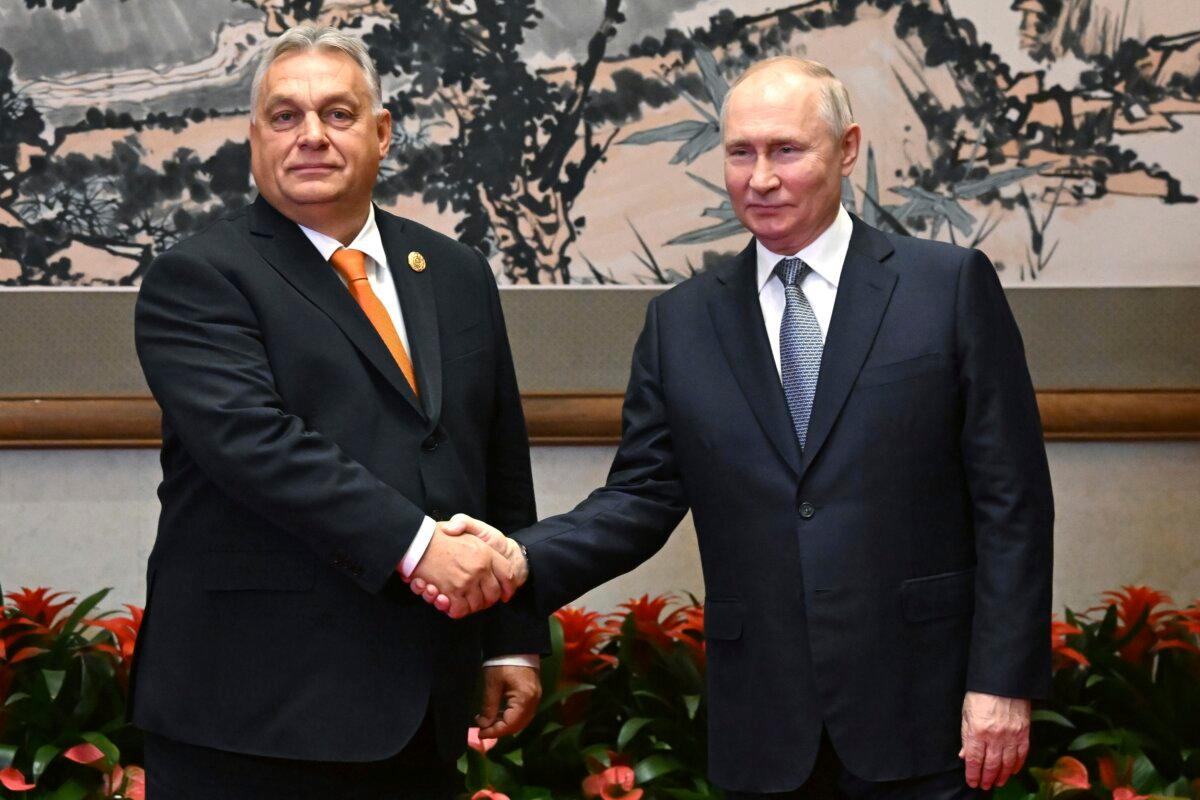Hungary Criticizes European Commission for Russian Oil Supply Disruption
Kyiv recently closed a land pipeline that provides Hungary and Slovakia with Russian oil, causing concerns about potential energy shortages.
Hungary has criticized the European Commission for not taking action to reverse or condemn Kyiv’s decision to stop the transport of Russian oil to both Hungary and Slovakia through its territory.
Last month, Kyiv unilaterally shut down a land pipeline that supplies Hungary and Slovakia with Russian oil, leading to worries about a shortage of supply in both countries.
In a statement on July 30, Hungarian Foreign Minister Peter Szijjarto accused the European Commission of failing to protect the “fundamental interests” of EU member states.
Szijjarto also suggested that it was “Brussels, not Kyiv … that wanted to blackmail two pro-peace countries that reject arms transfers [to Ukraine].”
Unlike other EU leaders, Hungarian Prime Minister Viktor Orban and his Slovakian counterpart, Robert Fico, do not fully support Ukraine, which is not an EU member.
They have also faced backlash from other EU leaders for advocating for a peaceful resolution to the ongoing conflict between Russia and Ukraine, which is now in its third year.

‘Hostage’ to Conflict
In June, Kyiv imposed unilateral sanctions on the Russian energy company Lukoil and stopped the flow of Russian oil through a pipeline that passes through Ukrainian territory.
The pipeline, dating back to the Soviet era, provides oil to refineries in Hungary and Slovakia, both of which confirmed in mid-July that they had ceased receiving Russian oil.
“The inclusion of Lukoil on the sanctions list is just another example of senseless sanctions that do not harm the Russian Federation but rather certain [EU] member states, which is unacceptable,” Fico’s office stated in a subsequent announcement.
On July 22, Hungary and Slovakia requested the European Commission to facilitate discussions with Kyiv to resolve the deadlock, giving the council based in Brussels three days to respond.
“Until this issue is resolved by Ukraine, everyone should forget about the payment of the 6.5 billion euros (approximately $7 billion) in compensation for arms transfers [to Ukraine],” Szijjarto said in televised remarks.
“The situation with the suspension of Russian oil transit through the Druzhba pipeline has nothing to do with blackmail,” he told Reuters.
“And Hungary and Slovakia are not acting as true peacekeepers… but are insisting solely on concessions to Russia.”
Podolyak accused the two countries of opposing the EU’s pro-Kyiv stance, urging them to press the Kremlin to refrain from attacking Ukrainian energy infrastructure.

Fico Plays Hardball
On July 29, Fico warned that Slovakia would stop supplying diesel fuel to Ukraine if the latter did not reopen the pipeline.
“If the transit of Russian oil through Ukraine is not resumed shortly, [Slovakian oil refining company] Slovnaft will cease its diesel supplies to Ukraine,” Fico stated on social media.
In response, Roman Andarak, Ukraine’s deputy energy minister, said Kyiv was “prepared to address any potential issues” with Slovakia.
According to Andarak, Kyiv “guarantees uninterrupted oil transit” for all companies not subject to Western or Ukrainian sanctions.
On July 30, Szijjarto criticized the European Commission for not resolving the crisis, stating that “it has taken no action.”
Meanwhile, the European Commission released a statement indicating that it was still gathering relevant information.
The statement read, “The Commission has sent detailed inquiries to Slovakia and Hungary to conduct a comprehensive analysis and has contacted Ukrainian authorities.”
On July 31, Ukraine’s prime minister stated that Kyiv’s prohibition on the transport of Russian oil did not jeopardize Slovakia’s energy security.
“Slovakia is a reliable partner for us, from whom we do not anticipate any blackmail or threats,” Shmyhal mentioned in a social media post.
“The sanctions … do not pose a risk to the energy security of Slovakia and Europe as a whole, so their removal is not up for discussion,” he added.
He highlighted that Kyiv had the “full understanding” of the EU on this matter.
Reuters contributed to this report.





